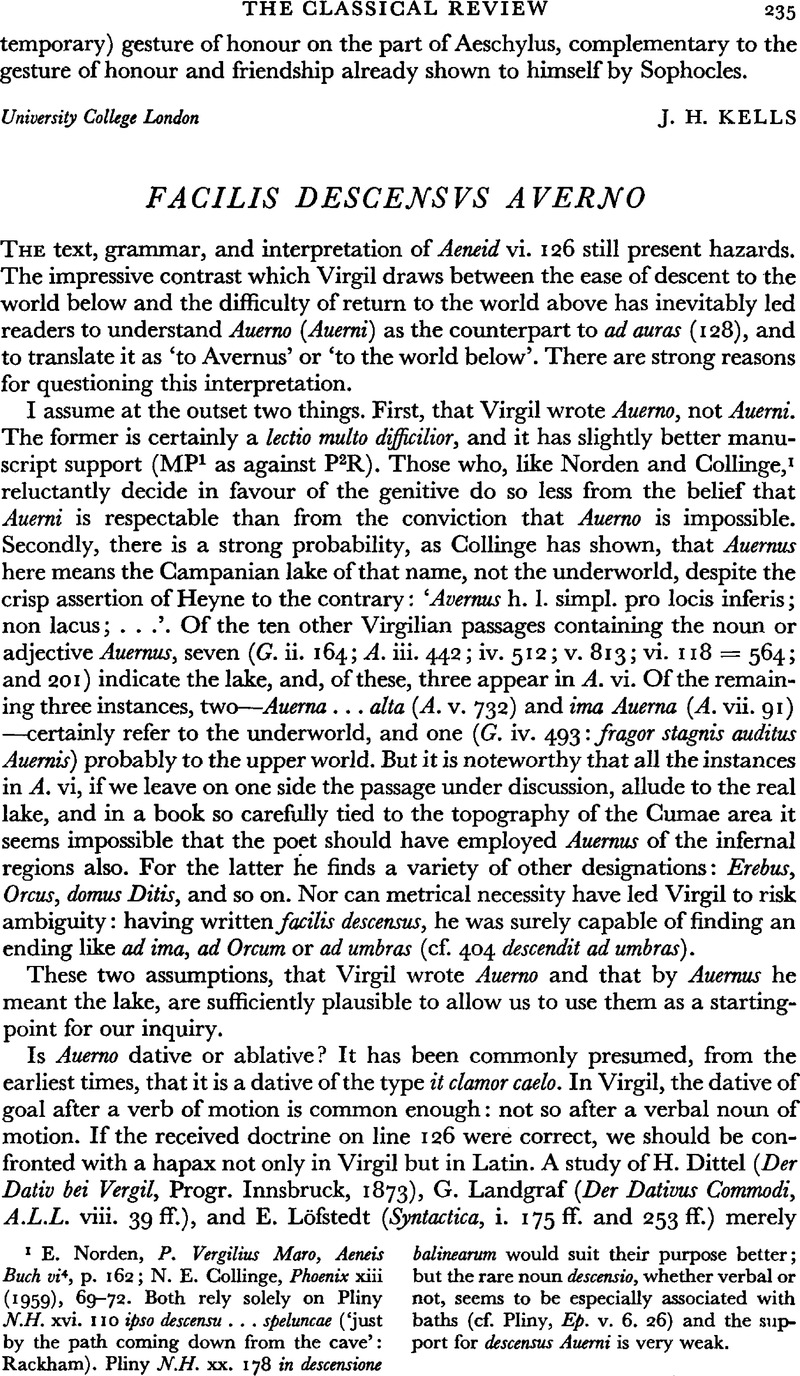Published online by Cambridge University Press: 27 February 2009

page 235 note 1 Norden, E., P. Vergilius Maro, Aeneis Buch vi 4, p. 162;Google ScholarCollinge, N. E., Phoenix xiii (1959), 69–72.CrossRefGoogle Scholar Both rely solely on Pliny N.H. xvi. 110 ipso descensu … speluncae (‘just supby the path coming down from the cave’: Rackham). Pliny N.H. xx. 178in descensione balinearumGoogle Scholar would suit their purpose better; but the rare noun descensio, whether verbal or not, seems to be especially associated with baths (cf. Pliny, Ep. v. 6. 26) and the supby port for descensus Auerni is very weak.
page 236 note 1 Cf. also Plautus, , Rudens 503Google Scholar, in nauem Flacinscensio; Cicero, Ph. xi. 2 nocturnus introitus Zmyrnam quasi in hostium urbem; de Legg. ii. 8 ascensus in caelum;Virgil, , A. vi. 318concursus ad amnem;Google Scholar ix. 454 f. concursus ad ipsa | corpora. At G. iv. 562 Olympo limits the verbal group uiam adfectat rather than the noun uiam.
page 236 note 2 Cf. the punishments describedby Virgil, at A. vi. 602–607:Google Scholar these are attributedby Statius, , Th. i. 713–716Google Scholar to Phlegyas, and by Valerius Flaccus, ii. 192–5, to Phlegyas and Theseus. This suggests that Statius and Flaccus were using texts of A. vi in which 602–7 followed 620, Statius reading quo super at 602, and Flaccus quos super.
page 236 note 3 One reason for the general avoidance of a dative of goal after descendere may be the danger of semantic confusion, for the abla- tive is commonly used both in prose and in verse after descendere to indicate place whence: thus descendere equo (Sallust and Velleius); descendere montibus (Virgil).
page 237 note 1 Another, though less plausible, possibility is the ablative of place whence: ‘it is Aristoeasy to get down (to the underworld) from Lake Avernus’:Virgil, , G. iv. 235;Google Scholar A. iv. 159; vi. 491. 830 f.
page 237 note 2 f. the mention of the route to or from the underworld at Eur. H.F. 23 f., Aristophanes, Frogs 117 f., Pausanias, ii. 31Google Scholar. 2, and Apollodorus ii. 5. 12.